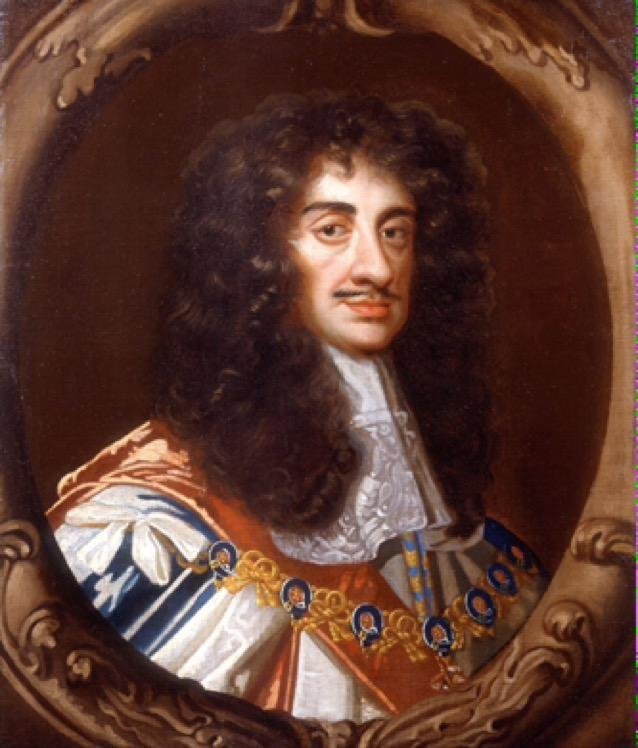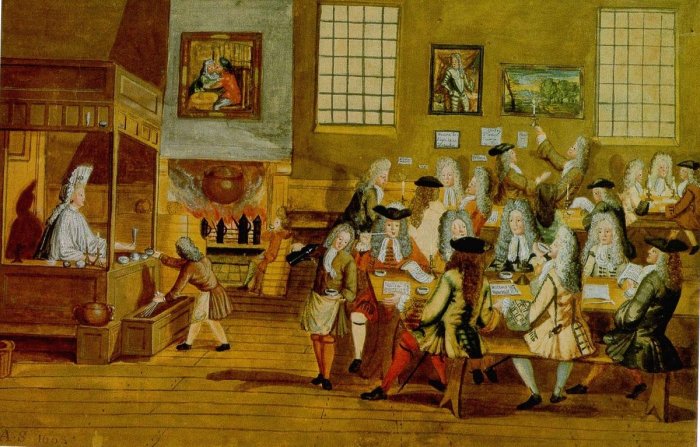King Charles II Of England Banned Coffeehouses In 1675
Ellen Lloyd - AncientPages.com - In 1675, King Charles II of England issued a proclamation to end the legality of coffeehouses. He banned coffeehouses and forbade people from selling coffee, chocolate, sherbet, and tea from any shop or house.
Charles was born on 29 May 1630, the eldest surviving son of Charles I. He was 12 when the Civil War began and two years later was appointed nominal commander-in-chief in western England. With the parliamentary victory, he was forced into exile on the continent. He was in the Netherlands when, in 1649, he learned of his father's execution.
In 1650, Charles made a deal with the Scots and was proclaimed king. With a Scottish army, he invaded England but was defeated by Cromwell at the Battle of Worcester in 1651. He again escaped into exile, and it was not until 1660 that he was invited back to England to reclaim his throne. His past could be the reason why he became suspicious of various plots against him.
In the 17th century, London coffeehouses became very popular. In the late 1600s and early 1700s, there were as many as 3,000 coffee houses in London, and they were a center for gossip. Intellectuals, professionals, and merchants thronged to the coffee houses to debate, distribute pamphlets, do deals, smoke clay pipes, and, of course, to consume a drink.
The popularity of the coffeehouses made King Charles II nervous, and he made an attempt to ban them.
Interior of a London Coffee-house, 17th century. Credit: Public Domain
King Charles II's argument was that coffee houses disturbed the peace of the realm and promoted idleness and some scurrilous and defamatory rumor-mongering. Of course, the true reason why King Charles II wanted to get rid of these meeting places was of a political nature. He suspected coffeehouses offered a perfect opportunity for plotting sedition and treason among the population.
A PROCLAMATION
FOR THE
Suppression of Coffee-Houses.
CHARLES R.Whereas it is most apparent, that the Multitude of Coffee-Houses of late years set up and kept within the Kingdom, the Dominion of Wales, and the Town of Berwick on Tweed, and the great resort of Idle and disaffected persons to them, have produced very evil and dangerous effects; as well for that many Tradesmen and others, do therein mis-spend much of their time, which might and probably would otherwise by imployed in and about their Lawful Callings and Affairs; but also, for that in such houses, and by occasion of the meetings of such persons therein, diverse False, Malitious and Scandalous Reports are devised and spread abroad, to the Defamation of His Majesties Government, and to the Disturbance of the Peace and Quiet of the Realm; his Majesty hath thought it fit and necessary, That the said Coffee-houses be (for the future) put down and supressed, and doth (with the Advice of his Privy council) by this Royal Proclamation, Strictly Charge and Command all manner of persons, That they or any of them do not presume from and after the Tenth Day of January next ensuing, to keep any Publick Coffee-house, or to Utter or sell by retail, in his, her, or their house or houses (to be spent or consumed within the same) any Coffee, Chocolet, Sherbett or Tea, as they will answer the contrary at their utmost perils.
And for the better accomplishment of this his Majesties Royal Pleasure, his Majesty both hereby will and require the Justices of the Peace within their several Counties, and the Chief Magistrates in all Cities and Towns Corporate, that they do at their next respective General Sessions of the peace (to be holden within their several and respective Counties, Divisions and Precincts) recall and make void all Licences at any time heretofore Granted, for the selling or retailing of any Coffee, Chocolet, Sherbett or Tea. And that they or any of them do not (for the future) make or grant any such Licence or Licences to any persons whatsoever. And his Majesty doth further hereby declare, that if any person or persons shall take upon them, him or her, after his, her or their Licence or Licences recalled, or otherwise without Licence, to sell by retail (as aforesaid) any of the Liquors aforesaid, that then the person or persons so Offending, shall not only be proceeded against , upon the Statute made in the fifteenth year of his Majesties Reign (which gives the forfeiture of five pounds for every moneth wherein he, she or they shall offend therein) but shall (in case they persevere to Offend) receive the severest punishments that may by Law be inflicted.
Given at our Court at Whitehall, the Nine and twentieth day of December 1675, in the Seven and twentieth year of Our Reign.
God save the King
The law to ban coffeehouses was passed on December 29, 1675, and was supposed to become active on January 10, 1676, but it was abolished on January 8. The undoing of the ban was backed by several ministers of Charles II, who themselves were lovers of coffee.
Written by - Ellen Lloyd – AncientPages.com
Copyright © AncientPages.com All rights reserved. This material may not be published, broadcast, rewritten or redistributed in whole or part without the express written permission of AncientPages.com
Expand for referencesReferences
The Old Foodie
More From Ancient Pages
-
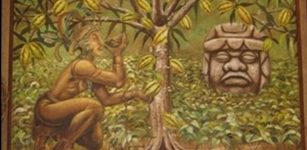 Among Ancient Maya Cacao Was Used In Celebrations And Was Common To All People
Archaeology | Sep 27, 2022
Among Ancient Maya Cacao Was Used In Celebrations And Was Common To All People
Archaeology | Sep 27, 2022 -
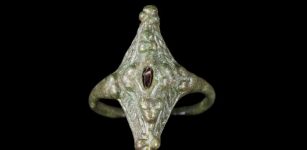 Extraordinary Kite-Shaped Pictish Ring Found At Moray Fort In Scotland
Archaeology | Sep 5, 2024
Extraordinary Kite-Shaped Pictish Ring Found At Moray Fort In Scotland
Archaeology | Sep 5, 2024 -
 Mysterious Advanced Underground Civilization And A Secret Society – Dangerous Knowledge And Verdict – Part 3
Ancient Mysteries | Apr 24, 2018
Mysterious Advanced Underground Civilization And A Secret Society – Dangerous Knowledge And Verdict – Part 3
Ancient Mysteries | Apr 24, 2018 -
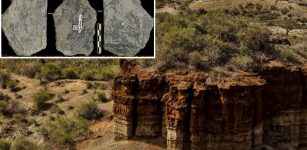 Olduvai Gorge: Direct Cosmogenic Nuclide Dating Of Olduvai Lithic Industry
News | Mar 31, 2022
Olduvai Gorge: Direct Cosmogenic Nuclide Dating Of Olduvai Lithic Industry
News | Mar 31, 2022 -
 Mysterious Wise Pre-Flood Beings Who Gave Humans A Precious Gift – Did We Reject It?
Featured Stories | Mar 9, 2025
Mysterious Wise Pre-Flood Beings Who Gave Humans A Precious Gift – Did We Reject It?
Featured Stories | Mar 9, 2025 -
 Ancient Burial Site Flagstones In Dorset Is Older Than Stonehenge
Archaeology | Mar 7, 2025
Ancient Burial Site Flagstones In Dorset Is Older Than Stonehenge
Archaeology | Mar 7, 2025 -
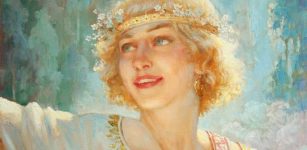 Yarilo (Jarilo): Slavic God Of Spring, Powerful Sexual Energy, Symbol Of Dying, Regeneration And Abundance
Featured Stories | May 7, 2019
Yarilo (Jarilo): Slavic God Of Spring, Powerful Sexual Energy, Symbol Of Dying, Regeneration And Abundance
Featured Stories | May 7, 2019 -
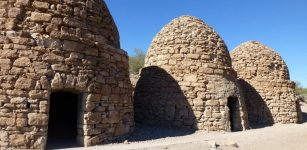 Arizona’s Enigmatic Beehive-Shaped Stone Coke Ovens
Featured Stories | Jul 15, 2023
Arizona’s Enigmatic Beehive-Shaped Stone Coke Ovens
Featured Stories | Jul 15, 2023 -
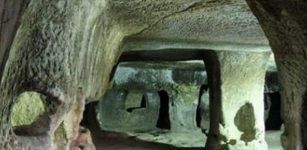 Nevsehir Labyrinth Of Tunnels: Largest And Most Complex Underground City In The World
Civilizations | Apr 7, 2015
Nevsehir Labyrinth Of Tunnels: Largest And Most Complex Underground City In The World
Civilizations | Apr 7, 2015 -
 Ancient Greeks Had Great Understanding Of Weather And Climate
Civilizations | Sep 7, 2015
Ancient Greeks Had Great Understanding Of Weather And Climate
Civilizations | Sep 7, 2015 -
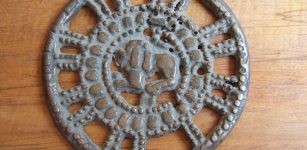 “Thogcha” – Thousand-Year-Old Tibetan Amulets And The Bon Culture
Ancient Technology | Dec 11, 2021
“Thogcha” – Thousand-Year-Old Tibetan Amulets And The Bon Culture
Ancient Technology | Dec 11, 2021 -
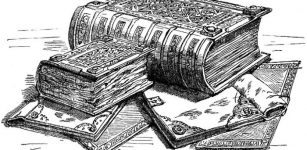 ‘The Domesday Book’ Of William I The Conqueror: Detailed Register Of ‘Who Owned What’ In England
Ancient History Facts | Jan 11, 2017
‘The Domesday Book’ Of William I The Conqueror: Detailed Register Of ‘Who Owned What’ In England
Ancient History Facts | Jan 11, 2017 -
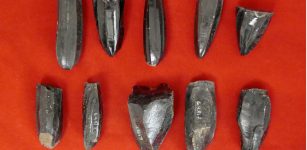 Mayas Utilized Market-Based Economics – New Study
Archaeology | Jan 6, 2023
Mayas Utilized Market-Based Economics – New Study
Archaeology | Jan 6, 2023 -
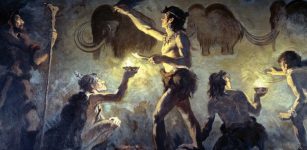 First Carbon-Based Paleolithic Paintings Found In Font-De-Gaume Cave, France Could Be 19,000 Years Old
Archaeology | Dec 29, 2023
First Carbon-Based Paleolithic Paintings Found In Font-De-Gaume Cave, France Could Be 19,000 Years Old
Archaeology | Dec 29, 2023 -
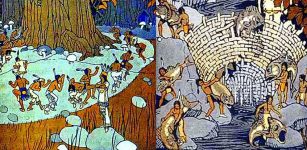 Yehasuri – Little People Of South Carolina Living In The Woods – Native Americans’ Version Of Leprechauns
Featured Stories | Feb 26, 2019
Yehasuri – Little People Of South Carolina Living In The Woods – Native Americans’ Version Of Leprechauns
Featured Stories | Feb 26, 2019 -
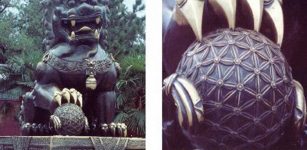 Ancient Symbol Seed Of Life Contains Hidden Secrets Of The Seven Days Of Creation
Ancient Symbols | Oct 8, 2017
Ancient Symbol Seed Of Life Contains Hidden Secrets Of The Seven Days Of Creation
Ancient Symbols | Oct 8, 2017 -
 Mysterious Ancient Tomb Reveals ‘Impossible’ Human Connection To Cosmos – Human Anomaly? – Part 2
Ancient Mysteries | Oct 15, 2020
Mysterious Ancient Tomb Reveals ‘Impossible’ Human Connection To Cosmos – Human Anomaly? – Part 2
Ancient Mysteries | Oct 15, 2020 -
 The Prophecy Of The Rainbow Warriors And Future Of Planet Earth
Featured Stories | Aug 29, 2018
The Prophecy Of The Rainbow Warriors And Future Of Planet Earth
Featured Stories | Aug 29, 2018 -
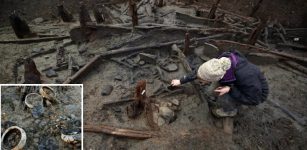 Mystery Of The British Pompeii Deepens – Bronze Age Settlement Destroyed By Dramatic Fire
Archaeology | Jun 23, 2019
Mystery Of The British Pompeii Deepens – Bronze Age Settlement Destroyed By Dramatic Fire
Archaeology | Jun 23, 2019 -
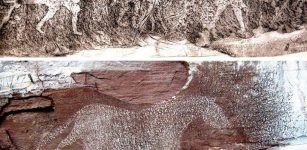 Sunduki – ‘Home Of The Gods’ – One Of The World’s Oldest Astronomical Observatories
Civilizations | Oct 4, 2015
Sunduki – ‘Home Of The Gods’ – One Of The World’s Oldest Astronomical Observatories
Civilizations | Oct 4, 2015

